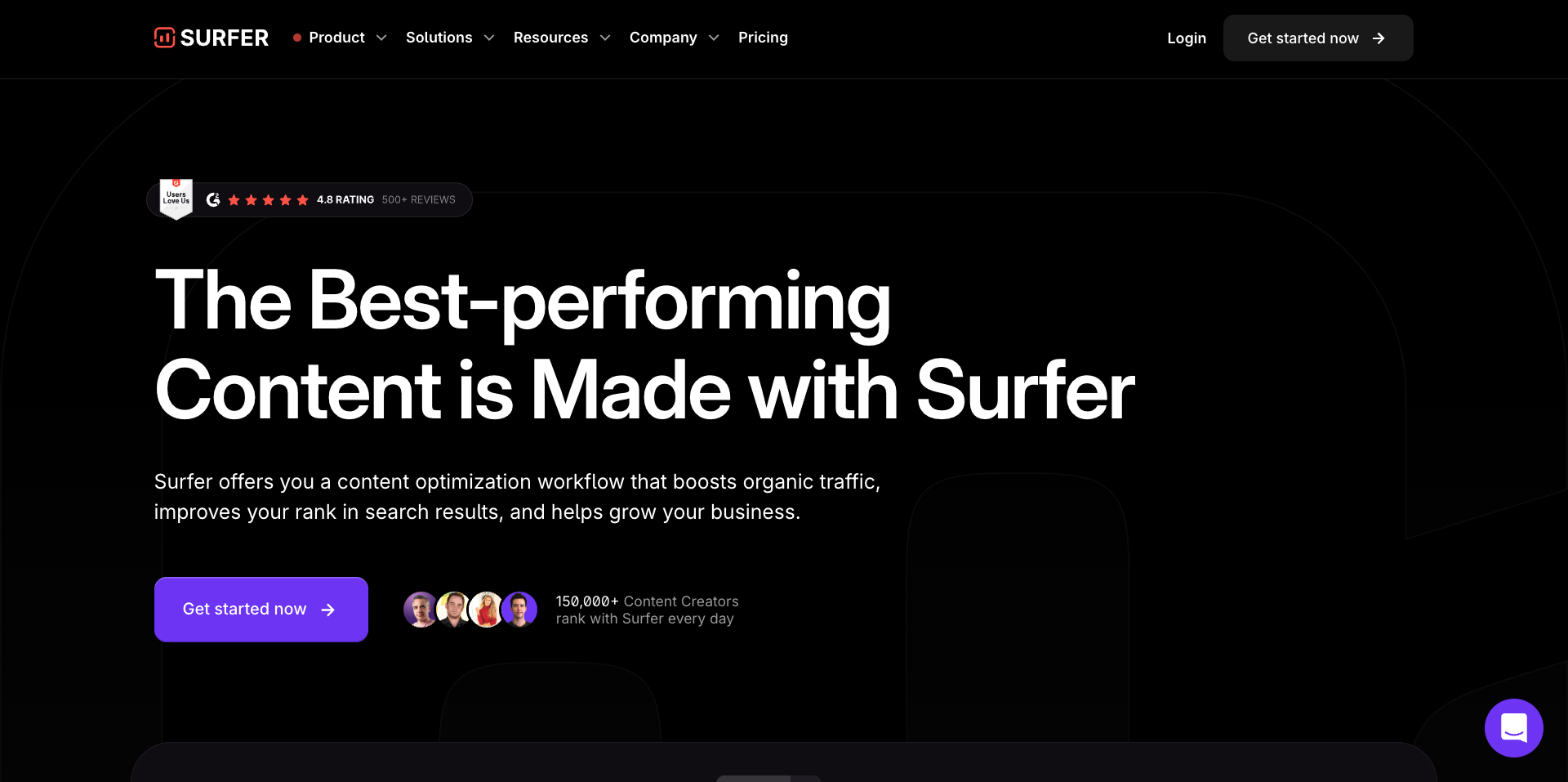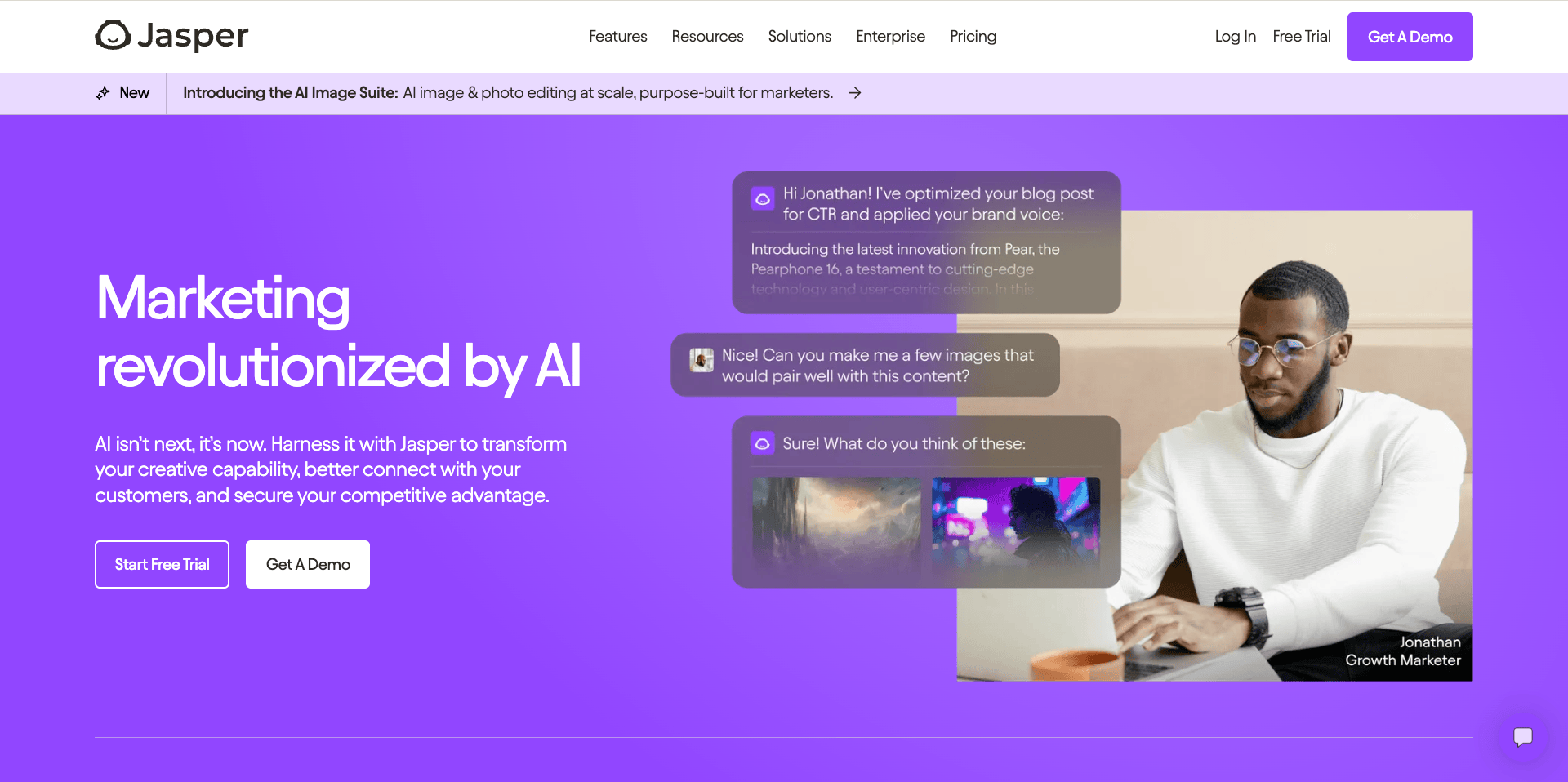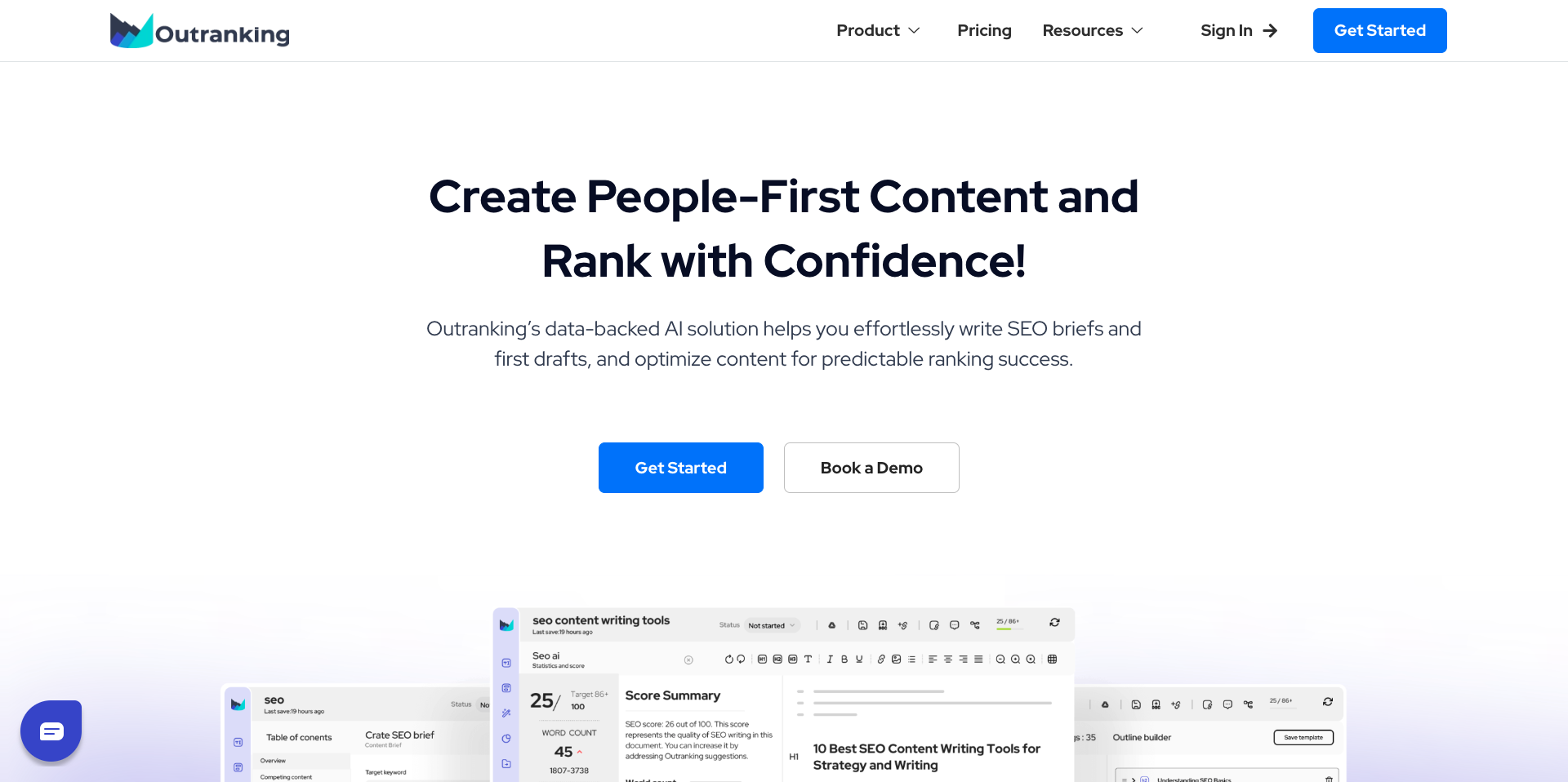Search Engine Optimization (SEO) remains a cornerstone of digital marketing, enabling businesses to improve their visibility on search engines and attract organic traffic. As technology evolves at an unprecedented pace, SEO strategies continue to adapt and refine. The widespread adoption of generative AI has marked a revolutionary shift in how we approach SEO. AI not only automates routine tasks but also significantly enhances the quality of SEO practices, offering more sophisticated and intelligent solutions for marketers, businesses, and SEO professionals alike.
With the rapid advancement of AI, including state-of-the-art language models like OpenAI's GPT-4 and Google's Gemini, the SEO landscape in 2024 and beyond focuses on intelligent automation, hyper-personalization, and predictive analytics. AI-driven tools now play a crucial role in understanding user intent, optimizing for voice search, and creating content that aligns with Google's E-E-A-T (Experience, Expertise, Authoritativeness, Trustworthiness) guidelines. The integration of AI in SEO has also brought forth new challenges and considerations, particularly in maintaining content authenticity and adhering to ethical AI practices. As search engines continue to refine their algorithms, with updates focusing on user experience metrics and mobile-first indexing, AI has become indispensable in helping websites adapt quickly and effectively.
In this article, we'll explore how AI is transforming SEO in 2024, examining the cutting-edge tools making an impact today, and forecasting what the future holds for businesses relying on search traffic to drive success. From AI-powered content creation to predictive SEO strategies, we'll delve into the technologies and techniques that are shaping the future of digital visibility.
How Generative AI is Redefining SEO Strategies
Generative AI has shifted the SEO paradigm by offering unprecedented levels of personalization and content generation capabilities. Unlike traditional SEO, which primarily revolves around keyword placement and backlinks, generative AI goes a step further by creating content tailored to user intent and behavior. It integrates search intent, long-tail keywords, and predictive analytics to ensure that users receive the most relevant information possible.
For instance, Google's Search Generative Experience (SGE) allows users to get answers to their queries directly from the search results page without having to visit external websites. This evolution towards “zero-click searches” means users get answers faster, but it also means businesses must rethink how they generate traffic. By integrating natural language processing (NLP) and machine learning, AI enables search engines to provide more nuanced, conversation-like responses. This creates a challenge for marketers, as simply ranking high on Google is no longer enough—now they must optimize for in-depth answers featured on search results pages.
AI also improves the understanding of search intent. While traditional SEO involves identifying keywords, generative AI can identify the nuances behind why a user searches for a specific term. This helps businesses create content that directly addresses the user’s query, improving the relevance and ranking potential of their pages.
For example, generative AI models can analyze vast amounts of search data to determine the context behind queries like "best smartphones for 2024." Instead of focusing purely on keywords, the AI analyzes trends, user preferences, and even sentiment data to provide more comprehensive and relevant results.
Impact of AI on Content Generation
One of the most groundbreaking shifts AI brings to SEO is in content generation. Previously, content creators had to manually write and optimize pages. Now, generative AI tools like ChatGPT can generate high-quality, SEO-optimized content within minutes. The AI models create blog posts, product descriptions, and other content types that are relevant, engaging, and informative. They not only optimize for keywords but also for user experience by creating content that flows naturally and appeals to readers.
For example, AI can create unique variations of the same content for different audience segments, optimizing each piece for specific keywords without duplicating content. This is particularly useful for businesses targeting multiple demographics or regions.
Top 5 AI-Powered SEO Tools You Need in Your Arsenal
The SEO tools landscape is evolving rapidly as AI becomes more integrated into various platforms. Below, we explore five of the most impactful AI-driven tools in SEO today, highlighting how they help businesses achieve their search optimization goals.
1. Surfer
Surfer is a powerful AI-based tool that helps content creators, marketers, and SEO professionals optimize their content based on in-depth analysis of search engine results. By analyzing competitor data, Surfer offers detailed recommendations for improving keyword usage, content structure, and internal linking strategies.

Surfer's primary strength lies in its ability to generate content briefs that help businesses create articles optimized for specific search queries. It also provides insights into improving internal linking, one of the key factors for on-page SEO success. By integrating data from Google Search Console, the platform delivers actionable tips for improving overall website performance. A digital marketing agency uses Surfer to audit a client's website, discovering several content gaps compared to top-ranking competitors. Using the tool's recommendations, they restructured blog posts, added relevant keywords, and optimized page titles and meta descriptions, resulting in a significant boost in search rankings within two months.
2. Jasper
Jasper stands out as one of the most advanced AI-driven content creation tools available today. Leveraging natural language processing, Jasper can generate long-form content tailored to SEO best practices.

Marketers often use Jasper to produce blog posts, social media content, and product descriptions. Its advanced capabilities allow for SEO-focused keyword integration while maintaining a human-like writing style. Jasper can adjust tone, style, and content structure based on the user’s requirements. An e-commerce brands want to scale its content marketing efforts but lack the resources to produce multiple articles weekly. By using Jasper, these company are able to generate high-quality blog posts optimized for SEO, improving organic traffic.
3. Ahrefs
Ahrefs is renowned for its backlink analysis, keyword research, and competitive analysis tools. In 2024, Ahrefs has embraced AI-driven insights to provide more refined keyword suggestions, automate backlink auditing, and offer deeper insights into content performance.

Ahrefs’ AI features help marketers quickly identify keyword opportunities that competitors may be missing. It also offers automated reporting on backlink profiles, making it easier to monitor changes over time. A startup used Ahrefs to uncover a lucrative keyword gap in its niche, allowing them to create highly targeted content that drew thousands of new visitors monthly. By using Ahrefs' AI-generated suggestions, they expanded their keyword strategy and improved their domain authority.
4. Semrush
Semrush has long been a trusted tool for SEO professionals. Its integration of AI makes it more efficient for conducting SEO audits, identifying keyword trends, and optimizing content based on search performance data.

Semrush is widely used for competitor analysis and content optimization. The tool’s AI-driven suggestions help users develop content strategies that align with changing search engine algorithms. For example, a small business improved its local SEO rankings by using Semrush to discover how competitors were targeting long-tail keywords. The tool provided insights that led to the creation of hyper-local content, boosting their visibility for location-based searches.
5. Outranking
Outranking is an AI-powered platform that simplifies the entire SEO workflow. From content creation to optimization and analytics, Outranking’s AI engine suggests everything from keyword usage to meta tags, making it easy for businesses to stay competitive.

Outranking excels in automating content optimization. It can generate blog posts, product pages, and even landing pages, all while ensuring they adhere to the latest SEO guidelines. Some SaaS company used Outranking to automate the creation of landing pages optimized for specific keywords. This reduced the time spent on content creation while significantly improving search rankings for those targeted pages.
Navigating the Future of SEO in a Generative AI Landscape
As search engines increasingly adopt generative AI models, businesses must rethink their SEO strategies to stay relevant. The rise of zero-click searches, driven by Google’s SGE and similar AI tools, presents both challenges and opportunities.
Businesses can no longer rely solely on ranking high in search results; they must now ensure that their content is engaging enough to capture users' attention in the few moments they spend on the search results page. Optimizing for snippets and ensuring that content is tailored to voice search will become increasingly important.
The next wave of SEO will likely involve a deeper integration of AI-driven personalization. As AI becomes better at predicting user behavior and intent, websites will need to offer dynamic personalized content that adjusts based on the user's history, preferences, and location. This will transform not only SEO strategies but also how businesses structure their websites and engage with their audiences.
Moreover, as AI continues to fight spammy, low-quality content, businesses that focus on creating high-value, user-focused content will be rewarded with better rankings. The future of SEO will be about providing meaningful, quality interactions rather than simply trying to game search engine algorithms.
Conclusion: Thriving in the AI-Driven SEO World
The impact of AI on SEO is undeniable, with tools like Surfer, Jasper, and Semrush leading the charge in automating and optimizing SEO efforts. As we look towards the future, businesses must focus on creating valuable, engaging content that aligns with the evolving nature of search engines. AI tools will continue to play an instrumental role in identifying opportunities, generating optimized content, and refining SEO strategies.
By embracing these innovations, companies can ensure that they remain competitive in the rapidly changing digital landscape, leveraging AI not as a replacement for human effort but as a powerful enhancement to it.
References
- Google | Supercharging Search with generative AI
- SEO.com | 8 Best AI SEO Tools (+ How to Use AI for SEO in 2024)
- Ahrefs | 14 Ways to Use AI for Better, Faster SEO
- HubSpot | 19 Best AI SEO Tools & How to Use AI in 2024 [New Data]
- Insight Partners | Generative AI, SEO, and what leaders should know: Google search in the future
- Fast Company | The future of Google search is clouded by generative AI
- Medium | The Power of Generative AI in Boosting Your Website’s Search Engine Rankings
- Forbes | Will Generative AI Mean The End Of Internet Searching And SEO As We Know It?
- Surfer | The Best-performing Content is Made with Surfer
- Jasper | Marketing revolutionized by AI
- Ahrefs | Your digital marketing strategy backed by real, actionable data
- Semrush | Get measurable results from online marketing
- Outranking | Create People-First Content and Rank with Confidence!
- Giselle | AI Generate Content: Innovations, Challenges, and What’s Next in Content Creation
Please Note: This content was created with AI assistance. While we strive for accuracy, the information provided may not always be current or complete. We periodically update our articles, but recent developments may not be reflected immediately. This material is intended for general informational purposes and should not be considered as professional advice. We do not assume liability for any inaccuracies or omissions. For critical matters, please consult authoritative sources or relevant experts. We appreciate your understanding.
